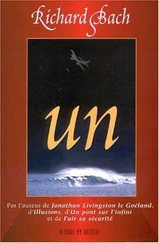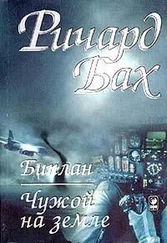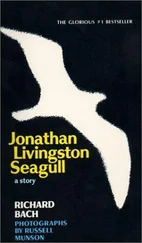“I’ll call Aunt Clara. Honey, please, now. You have to stop letting your mind run away with you. I’ll call Clara, and then I’ll call you right back. Please try to calm down.”
“I’m sorry,” Natasha said. “I will.” She pushed the button to end the call, then tried Faulk’s cell number. Nothing but a jangle of electronic noise.
Lying back down on the bed, she stared at the ceiling and at the angles of wall and door and the entrance to the balcony. She looked out at the shining water. In an odd optical illusion it appeared to be a faintly shimmering black wall, until she raised her head and saw it clearly, stretching on to the horizon. The phone rang.
“Honey,” Iris said. “I can’t seem to get through. A voice keeps saying that all circuits are busy. The volume of calls. I’ll keep trying. I just got through to you right away.”
“That’s because these are landlines.”
“Yes, but Clara’s phone is a landline.”
“Will you keep trying for me? And if you don’t get me when you call back, will you leave a message at the desk?”
“I will. And you come home as soon as you can, darling.”
She got up and went out on the balcony and looked at the scene before her, a vacation beach, people moving through the fading shadows of the palms or playing in the shallows. She looked at the darkening sky and thought, for the first time in her life, of her country as a separate thing, a nation, harmed, at some kind of war, and unreachable.
5
Faulk reached Penn Station, limping from a catch in his knee, and stood in the center of the big space, holding his suitcase. People wandered aimlessly, many of them without luggage. A great roar of voices reverberated in the high vault of the ceiling, and yet no one appeared to be speaking to anyone. Everyone looked isolated and bewildered. In the waiting area, others were already lying down — preparing for a long wait. The board with the scheduled departures showed a list of cancellations. Faulk moved to a small space near the wall and set down his suitcase. His hand was stiff; his arm and shoulder ached from carrying the thing. His knee hurt. He sat on the suitcase for a while, feeling the fatigue of the long walk and waiting for some sign about what the trains were doing — he heard someone say that the authorities were calling for people to leave the city. But nothing changed. Absurdly, the sight of a small dark bird gliding and dipping in the upper reaches of the high ceiling saddened him beyond measure. Tears ran down his face. He attempted to lie down, but the floor hurt his hips, and then he thought of getting as close to the gates as he could. He had an intimation that something was coming, an announcement. The numbers and town names inside the slat-sized windows of the schedule board suddenly began revolving with a wild clicking sound, as though a whole new schedule were about to be revealed. But the clicking stopped, and the board was blank. He got to his feet, lifted his bag, and started to the nearest ticket counter, in the close, low-ceilinged far end of the station. Surprisingly, he did not have to wait long — the woman there was being very brief with each person. She looked bone weary, her round, dark face glossy with sweat. He stepped up to the window and asked when the next train to Washington would leave.
“Nothing from here right now, and not for several hours,” she said. “One coming in soon, going to Newark. You can get on that one. There’s one from Boston that stops in Newark. It’s not an express. It’ll end up in Washington.”
“I have an express ticket to Washington from here.”
“No tickets, sir. First come, first served. They just want everyone to get out. I don’t know what it’ll be like in Newark. The one from Boston’s not an express.”
A woman standing behind her, holding a stack of what looked like tickets of some kind, said, “The mayor just said everybody should stay. Guess to show ’em we ain’t beat.”
“Tell that to all these people here.”
“Do you think there’ll be seats on that train?” Faulk asked. “The one to Newark?”
“I can’t say, sir.”
He heard the announcement for track 9 as he started toward the stairwell down to the gates. In the crush, he got to track level and walked along the length of the just-arrived train, a long line of tall cars that were packed to the windows, though people were hurrying to board and being helped by the conductors. He took the entrance to one car and stepped up into the mass of others in the aisle, the thick odor of those tight quarters mingling with the smell of the tracks, the diesel- and ozone- and creosote-heavy air. He was carried on the tide of these others almost to the far end, where more people were entering or seeking to gain entrance. Seated next to one window was a woman holding a little boy. She was making an effort to entertain him by talking in an excited voice about all the people out there.
“Is everyone going home?” the boy said.
“Yes, they are,” his mother answered with the brave fake cheer of a parent lying to a child.
Finally, the train jolted into motion. Holding on was difficult without touching someone else. Faulk, reaching to brace himself on one side of the two seat backs where he stood, felt the wrist bone of a gray-eyed old woman, who glanced at him and then looked away. There wasn’t anything for it.
“How would they get pilots to fly their own planes into buildings?” a man said.
“Maybe the pilots were in on it,” said someone else.
“I don’t believe that. My brother’s a pilot. This was some kind of hijacking, I guarantee it. Some suicide fucks. Excuse me for the language.”
There was just the rocking motion of the car for a time, and the difficulty everyone was having staying in place with nothing really to hold on to. Faulk saw an elderly black man rise in the little space he had and offer his seat to a woman with an infant. She took it, and the infant began to whimper, and the man, whose dark face looked too slack to be healthy, had to use her shoulder to keep standing. He had large ears and thick gray hair, and he smiled at the baby.
The windows slowly gave way at last to brightness, the train leaving the confines of the station. Faulk saw other tracks, buildings and billboards, the tall blue shadows of the city, and, visible out the windows to the left, the smoke where the towers had been. The train picked up speed. The ash-and-smoke cloud was appallingly defined, a gigantic, ragged-edged, domelike shape, too strange a sight for belief. Bright, unblemished blue sky still shone far above its dissipating outline.
No one spoke to anyone.
Faulk watched until the cloud was no longer visible, and the many others watched, too, the harmed city behind them in the too-bright sun, and the silence felt almost supernatural, as if everyone here were already dead, spirits being carried away. Even the infant was completely quiet, staring at the faces. The ground on either side of the tracks gave way to tenements, yards with laundry on lines, and a view of the East River beyond, the factory silos and fortresslike walls of coal and metal, the auto junkyards, the cranes of the harbor lifting into the sun. It was all a confusion of commerce and waste, and the people in the packed car gazed at it out the windows, quietly taking in the vast industrial insignia of the country where they lived.
In Newark, there was more confusion and crowding, people hurrying to the escalators that would take them to the ticketing area. Faulk made his way up there and out of the building. The air was heavy and smelled strongly of gasoline and burning. He thought of the fires in New York. He saw a big barrel-shaped metal trash can with flames licking out of it. Someone had evidently thrown a lit cigarette into it. A man stood pouring a can of cola onto the fire. Faulk went on across the street, to the Hilton. In the lobby he saw men, women, and even some children lying on the furniture and on the floor along the walls. At the reception desk, which was surprisingly empty, he got the attention of a young man whose black string tie was hanging loose around his neck. The young man was bleary eyed, his reddish hair disarranged. He looked like someone recovering from a long night of overindulgence. He removed his coat, and Faulk understood that he was at the end of his shift. There was effectively no one behind the reception desk. The young man shook his head and gave him a commiserating look. “We don’t have any more rooms, man. Absolutely nothing. We’re letting people stay in the lobby.” He indicated the others, one or two already sleeping on their bags.
Читать дальше












